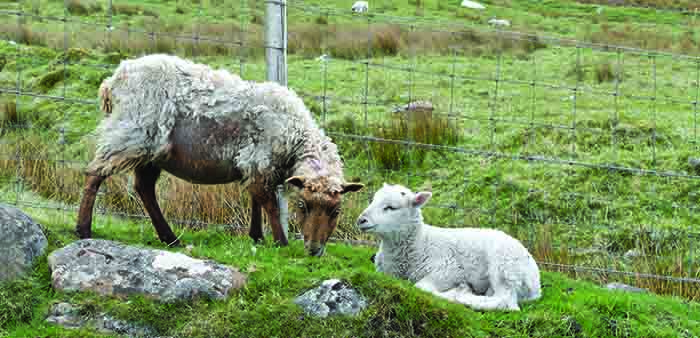Farmers bringing any sheep onto their farm this autumn and winter with an unknown sheep scab status should assume they have scab and manage appropriately; two leading vets have warned.
Advanced veterinary practitioner Joe Henry, of Black Sheep Farm Health, said sheep scab is a very real threat, especially at this time of the year with the volume of sheep movements taking place.
He said: “There are a lot of sheep arriving on farms at this time of the year from sales and summer grazing. Any new arrivals should be viewed as a potential source of infection.”
Diagnostics
Where possible, farmers should look to use blood diagnostics to see whether sheep are suffering from an active infection, said sheep specialist vet Emily Gascoigne from Synergy Farm Health.
She said: “Because of COVID-19 and evidence of an increasing number of sales moving online with sales direct from the holding, there is an opportunity to conduct blood serology tests (ELISA test) pre-purchase. Blood serology will give you an idea if sheep have been infected and can reduce the need for treatment.
“It is important you don’t share trailers with flocks of an unknown status and also ensure transport is thoroughly disinfected to avoid the scab mite being transmitted on-route.”
Ms Gascoigne also encourages farmers to conduct blood serology on their own flock. “Knowing your flock’s own scab status can help you manage the situation.,” she said. “Where there may have been contact with another flock at a boundary, or shared equipment, this may be as much of a risk as newly purchased animals.
“Testing can also be particularly useful in organic flocks pre-purchase where the use of Organophosphate Dips (OP) are not permitted.”
Management
Where blood serology cannot be conducted pre-movement, then ideally, any stock moving onto farm should be quarantined for at least three weeks. Blood testing can be conducted two weeks into quarantine to identify any active infection.
However, where that is not possible, sheep should be treated.
Mr Henry said: “Practically very few farms can maintain biosecurity for that number of weeks at this time of the year. The problem is the scab mite can live in the environment off sheep for 17 days, so you need to be managing as soon as they arrive on the farm.”
Using injectables
Zoetis vet Ally Anderson said when farmers are using injectables for scab control they should remember to avoid repeat doses and make sure their use is necessary to avoid anthelmintic resistance.
She said: “Remember scab can live in the environment for 17 days off the sheep and that not all MLs offer persistent scab protection. If using an ML injection that does not provide a persistent action, all sheep will need to be treated on the same day and the sheep need to be moved to a pasture that has been free from sheep for three weeks.”


